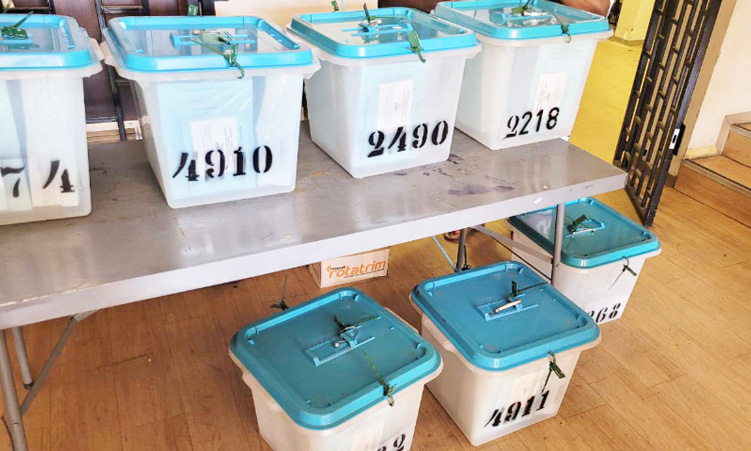The Electoral Commission of Namibia (ECN) is launching a nationwide civic education campaign to inform and encourage citizens to participate in the upcoming general registration process and presidential and National Assembly elections.
ECN spokesperson Mulaudi De Wet Siluka says the comission has rolled out a civic education programme in all 121 constituencies in the last two years as part of its strategic plan for 2022 to 2027.
“This programme is aimed at creating awareness among the voters participating in elections and will subsequently contribute to democratic processes,” he says.
“It is to ensure that the electorate and eligible voters are well-informed about the importance of participating in elections,” he says.
De Wet Siluka says the campaign is aimed at fostering a sense of civic duty and engagement among citizens.
He says to ensure effectiveness, the campaign will employ various strategies and tools to reach a wide audience, including civic engagements, social media campaigns, educational material and community outreach events.
“As part of the awareness campaign strategy, the commission will employ youth ambassadors across the country and formalise collaboration with civil society organisations to complement voter education officers and the efforts of the commission.
“This is to ensure that all eligible citizens have the opportunity to exercise their democratic right to register and vote. In addition, the commission will also utilise social media and digital platforms to disseminate electoral information,” he says.
De Wet Siluka says as part of its responsibility, the ECN will ensure that stakeholders, including political parties, are always engaged in the process.
“The ECN is thus calling for combined efforts from all key electoral stakeholders . . . to help drive an informed dialogue among the Namibian population on electoral matters,” he says.
LACK OF INTEREST
A recent ECN report found a worrying trend of voters showing an increasing lack of interest in local elections.
For instance, 532 287 out of 1,3 million eligible voters did not cast their votes in the 2019 national elections.
This is compared to 18 600 who did not turn up to vote in 1989.
Institute for Public Policy Research (IPPR) executive director Graham Hopwood says unless young people are persuaded to take an interest in Namibian politics, the country is likely to see low election turnout.
He says young people could have a strong influence on the outcome of the 2024 election.
“At the moment it seems many do not see voting as important . . . I don’t think many people know they have to register to vote again this year, because we will have a completely new voters’ register,” he says.
According to the ECN report, 650 200 people registered to vote in 1994, but only 497 500 cast their votes.
The turnout dropped to 76,1%, followed by 62,1% in 1999, when 878 870 voters registered to vote but only 545 460 cast their votes.
There were slight surges in 2004, when 833 100 out of 977 700 voted, and in the 2009 elections 1,1 million people registered to vote, yet only 812 233 voted.
Participation dipped again in 2014, when 1,2 million people registered to vote, but only 875 232 participated in the elections.
Stay informed with The Namibian – your source for credible journalism. Get in-depth reporting and opinions for
only N$85 a month. Invest in journalism, invest in democracy –
Subscribe Now!






